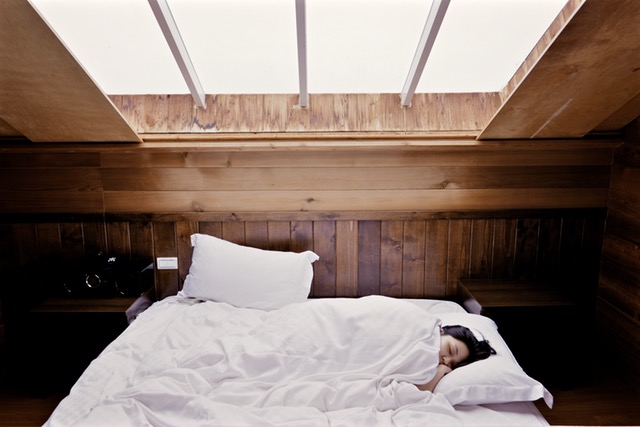Sleep commonly comes hand-in-hand with getting enough rest – or so we thought. You can sleep in all day and still wake up even more tired as ever, or you can get just enough and have so much energy to last through the day, and even more. What we’re learning here is that sleep does not immediately equate to rest – there are a whole lot of other factors to consider to avoid sabotaging your own restful sleep, and instead create a truly restful environment for replenishing your energy and rejuvenating your mind and body.
Sleep Environment
Your room is where you sleep and ideally get the rest you need, so it’s important to maintain conditions that help you sleep well. Factors such as room temperature, brightness, cleanliness and noise affect your sleep, so make sure to clean your room, set a suitable temperature, dim the lights and look for some peace and quiet for a calm and restful slumber.
Change Your Sheets
Your sheets touch your body, so when these are dirty they can cause personal hygiene issues that could very well impact how you sleep. Wash your sheets at least every two weeks to get rid of dirt and allergens, and you’ll be surprised how fresh sheets stimulate rest and relaxation.
Old Pillows and Mattress
Where you sleep on also affects how you rest. But even your trusty pillows and mattress that have been ushering you off to dreamland all these years deteriorate in quality. The fabric and feathers collect dust and cause you to have allergies. Keep in mind to replace pillows every two years, and if you can’t remember when you got your mattress, it’s most likely due to be replaced.
Eating Right Before Bed
Going to bed with a full stomach or a heavy meal right before bedtime causes you to experience GERD or heartburn, keeping you up due to the discomfort, instead of sleeping soundly and relaxing.
Sleeping Hungry
On the other hand, going to bed when you’re hungry can also disrupt your rest as it causes an arousal. It’s a state of not being fully awake, but your brain is being stimulated. When your stomach growls at night and wakes you up, opt for light bedtime snacks, such as yogurt or fruit to ease the hunger pangs and sleep better.
Exercising Before Going to Bed
Sometimes when we have trouble falling asleep, we think doing intense exercise right before going to bed is the solution as it drains our energy and makes us feel tired and sleepy. However, this feeling of tiredness actually affects quality of sleep. If you feel like stretching some muscles to help you relax before going to bed, you can do something low-key and calming, like yoga. Still, the best time for exercise is in the morning or after work, and nowhere near three to four hours of your planned bedtime.
Lack of Exercise
Too much exercise right before going to bed makes it hard to get a good night’s sleep, but lack of exercise also does the same. Confusing, right? The key is to strike a balance between the two with daily regular exercise, such as exercising for 20 minutes everyday in the morning or right after work to stay in shape. Maintaining your health with normal weight also reduces your risk of developing sleep disorders, such as sleep apnea.
Sleeping in on the Weekends
Weekends always sound like a great time to sleep in, and we often think that this allows us to rest better and make up for the lack of sleep during the busy week. However, sleeping in breaks your consistent sleep-wake schedule, causing you to feel even more tired and sleep deprived. For truly restful sleep, going to bed and waking up at the same time can improve your quality of sleep.
Put Down the Phone
We’re all victims of staying up late one night too many, all because we couldn’t put down the phone. Bright light stimulation impacts your circadian rhythm and sleep quality by affecting your body’s melanin production (the hormone that tells your body to sleep). To avoid this, you can dim the lights when the you get home and use lamps instead of bright overhead lights, while setting your phone screen’s brightness at a minimum, signaling to your body that it’s nighttime and you need to sleep soon. Of course, putting down your phone about an hour, to half an hour before going to bed greatly helps your body and mind relax.
Get Help for Sleep Disorders
Sleep disorders are a real problem, and sometimes, you will need help to get past them and sleep well. You can keep a nice and clean room, maintain a consistent sleep schedule, dim the lights, and put down all electronics before going to bed, but when you’re lying on your bed awake and still can’t sleep well, it’s time to check for an underlying sleep disorder and ask help to get restorative sleep again.

